Improperly executed surgeries is medical negligence by a surgeon. You expect a positive result from surgery, not surgical negligence with damage done to you.
Surgery is precise work and must be carried out to the highest of standards. There is little room for error, even with minor surgery. A nicked nerve or artery can cause a lot of damage and be life-changing in some cases.
Improperly executed surgeries injure the patient and do not solve the initial complaint but make it worse.
A No Win No Fee medical negligence solicitor will make your compensation claim for improperly executed surgeries.
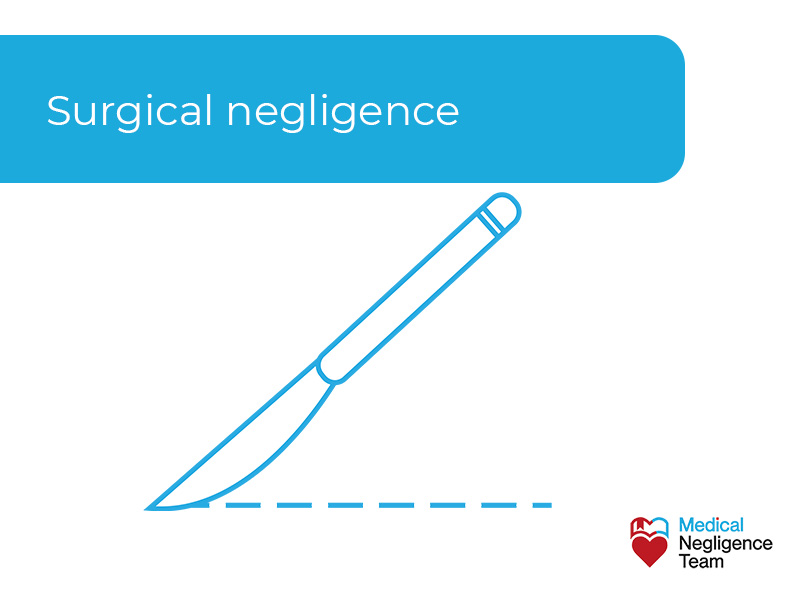
Table of content
What is an improperly executed surgery ?
Improperly executed surgeries is the medical negligence of not carrying out surgery in a professional manner. It is the below-standard treatment causing damage during routine surgery.
An improperly executed surgery is medical care below the standards that any other medical professional would provide. It is surgical care so bad that no other medical professional would stand over the results.
There are not any excuses for improperly executed surgeries, as every surgeon should be fully prepared for every surgery.
The checklist must be ticked and checked by senior surgical team members, and every procedure double-checked against the patient’s notes.
Improperly executed surgeries should not happen, but some common claims show that they do, and you can claim compensation if you suffer something similar.
Common improperly executed surgery claims
Common improperly executed surgery claims happen across the range of surgical procedures. It could be back surgery, brain surgery or cosmetic surgery where an error occurs, but each type of surgical negligence will damage you.
Some common improperly executed surgery claims are for:
Severed nerves during surgery claim
Severed nerves during surgery often happen during hip and knee replacement operations. Not paying full attention to their work, the surgeon severs a nerve like the sciatic nerve and does much damage.
A nerve can be severed in any type of surgery. Back surgery can go wrong when the surgeon slices one of the many nerves at the base of the back. Surgery on the wrist or elbow can do lasting damage when the blade cuts through a nearby nerve.
A severed nerve can lead to lasting pain and disability in some patients. You could lose sight in an eye or the use of a limb.
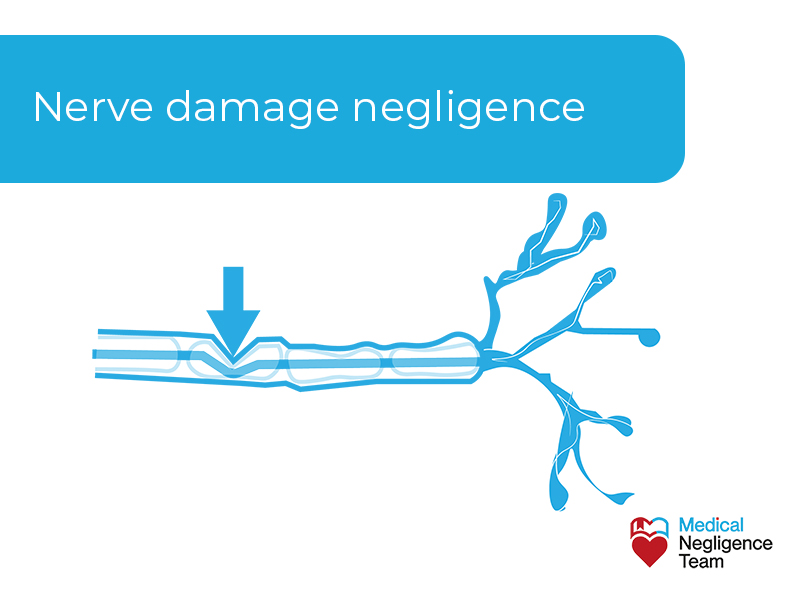
Internal organ perforated during surgery claim
Internal organ perforated during surgery is a life-threatening situation. A perforated bowel will spread infection, and a perforated kidney or liver will cause many complications.
When operating on the body, the surgeon must avoid causing on improperly executed surgery. The surgical negligence of nicking an internal organ may have you needing more surgery and spending more time in hospital.
You will need months of treatment to recover from a perforated lung or stomach. The damage will have knock-on effects and could be a lot worse than your initial surgery.
Cosmetic surgery errors claim
Cosmetic surgery errors injure the patient and cause a lifetime of suffering and pain. You undergo cosmetic surgery to reverse or alleviate body image problems or damage from an accident, but the cosmetic surgery error makes everything worse.
Some cosmetic surgery errors are:
All surgery carries risks, but cosmetic surgery errors due to surgical negligence are avoidable and will take more surgery to reverse.
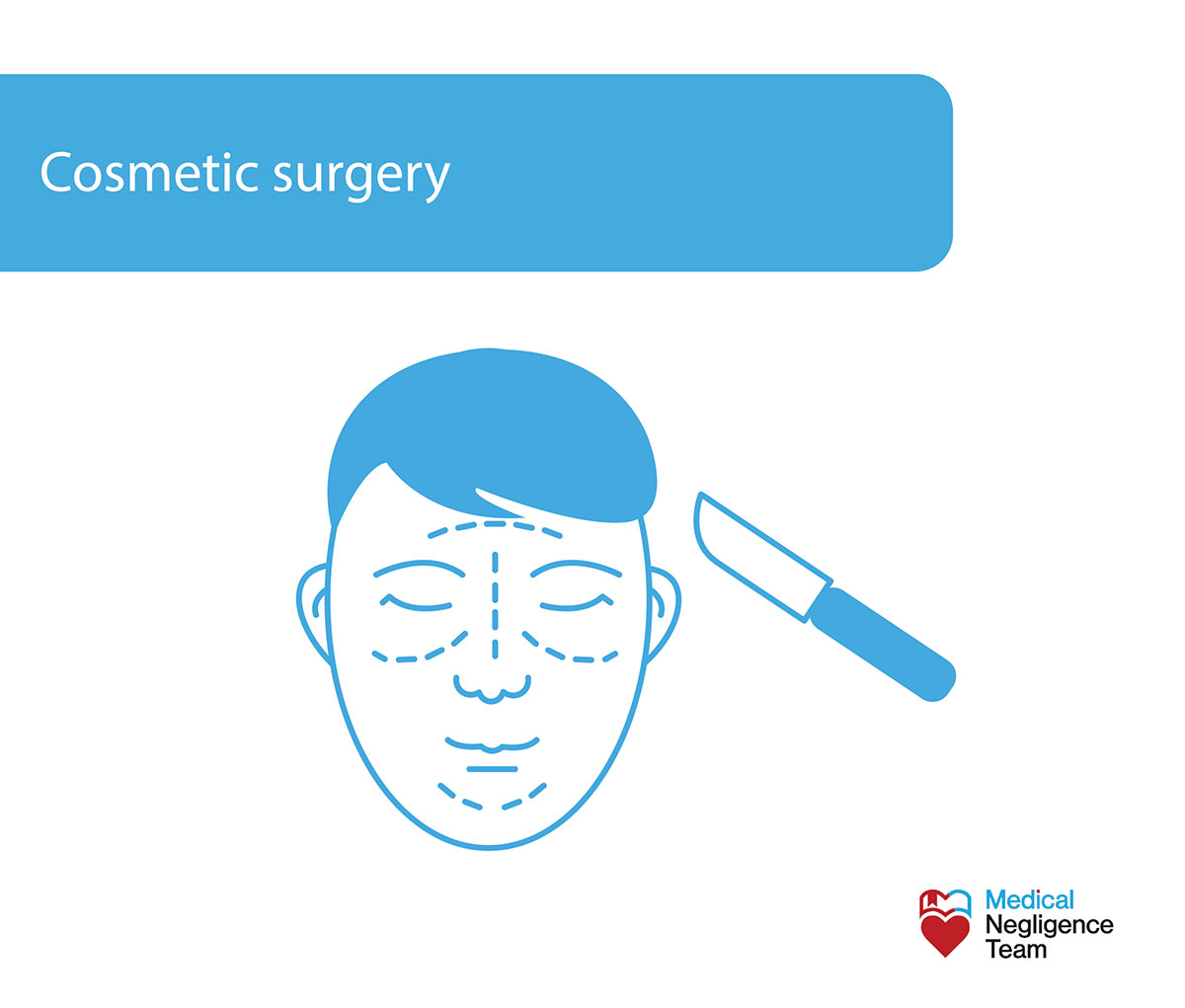
Unnecessary surgery claim
Unnecessary surgery, like opening a patient to remove a tumour which is not there, puts the patient through unwarranted stress and trauma. The improperly read scan will mislead the surgeon and put the patient through avoidable surgery.
The need for surgery must be examined fully and explained to the patient before proceeding. Improperly executed surgeries can be avoided with better surgeon-patient communication.
If medication can manage a heart complaint rather than undergoing surgery, it should be explained to the patient.
Having extensive physio or exercise may repair nerve damage rather than the proposed invasive surgery.
The surgeon has a duty of care to the patient to explain the benefits and drawbacks of surgery. They must also examine in detail the need for surgery and any alternatives to putting the patient at risk.
Damage to reproductive organ claim
Damage to reproductive organs happens when improperly executed surgery causes complications.
A surgeon can damage the fallopian tubes when removing a cyst or dealing with an ectopic pregnancy. In a woman of childbearing age, the damage is devastating if it makes them unlikely to conceive.
Surgery on a male can damage their ability to function sexually or produce sperm. Nerve damage to the area can be difficult to reverse, affecting the man for life.
A surgical error may result in the removal of the reproductive organs with all the associated consequences.
Infection from poor hygiene claim
Infection from poor hygiene during surgery should never happen, but it does with some terrible outcomes.
An incorrectly kept surgical theatre will breed infection and allow it to infect the patient. The surgeon and team who do not practise good hygiene can carry disease and spread it during surgery.
Infection from poor hygiene can come from poorly sterilised surgical instruments or implants used during the surgery. It will quickly spread throughout the body and damage internal organs.
Incomplete surgery error claim
Incomplete surgery errors are very typical of improperly executed surgeries. The surgeon only partially removes the appendix or gall bladder and, in doing so, puts the patient at risk.
The surgeon must complete a surgery from start to finish. The new knee joint must be fully fitted and operational. An operation to repair nerve damage must ensure all surgery is complete and nothing is left to chance.
A fully-trained and prepared surgeon should not make an incomplete surgery error, and it is surgical negligence when it happens.
Anaesthesia complication claim
Anaesthesia complications are rare, but they can happen due to surgical negligence. The anaesthetist should be fully prepared and be prepped by the surgeon to avoid all chances of making an error.
Too little anaesthesia will cause complications with the patient not being fully under during surgery. Too much anaesthesia can cause heart complications and make post-operative recovery difficult for the patient.
A patient’s full history must be taken into account, as should their age, weight and other relevant statistics.
Improperly executed surgeries do not happen when the surgeon and team do their job correctly. Along with surgical never events, they are unlikely to happen, but when they do, you can claim compensation against the surgeon or the NHS.
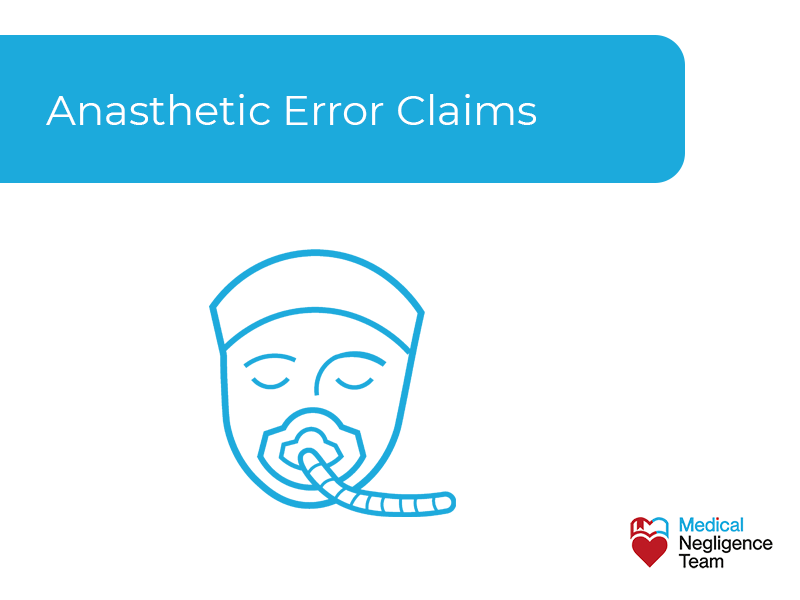
Surgical never events
Surgical never events are errors in surgery which should not happen if everyone involved follows all mandated procedures. The NHS identifies avoidable errors and details how all staff must approach each type of procedure.
The avoidable errors are known as Never Events.
When a Never Event happens, it is directly due to an improperly executed surgery. The surgical negligence causes an error which would otherwise be avoidable.
Surgical never events are:
Wrong site surgery
Wrong site surgery is when the surgeon operates on the left leg instead of the right or removes the gall bladder instead of surgery on the spleen.
Surgery must be detailed in advance of an operation. There is no excuse for wrong site surgery except for medical negligence, and you can claim compensation.
Wrong implants or prosthetics
Wrong implants or prosthetics is when the surgeon uses a new joint of the wrong size or installs a stent unsuitable for your heart.
If the surgeon crosschecks with all notes before surgery, this will not happen.
A never event is an improperly executed surgery, and you can sue for compensation.
Retained foreign objects
Retained foreign objects like a surgical swab or orthopaedic screw is serious medical negligence. Every item in surgery must be counted and accounted for both before and after the operation.
A Never Event of retained foreign objects will cause infection and keep you longer in hospital.

Operating on the wrong patient
Operating on the wrong patient would not happen if everyone on the surgical team had done their job. Notes, date of birth and patient name must be checked and double-checked before surgery.
To operate on the wrong patient can do irreversible damage, and you can file a compensation claim for medical negligence.
Incorrect surgery
Incorrect surgery is removing a healthy organ or not doing the surgery as outlined in the patient’s notes. Incorrect surgery can happen when the surgeon removes the fallopian tubes instead of the cyst as requested.
Having incorrect surgery means the original surgery may still be necessary. You will also have the damage to a healthy organ and the unnecessary recovery time.
Never Events should not happen, but they do. The patient will go through unnecessary trauma and surgery and can make a claim for medical negligence compensation.
Who is responsible for improperly executed surgeries?
A medical professional is responsible for improperly executed surgeries. The negligence of the surgeon, nurse or consultant leads to errors that cause a surgical mistake.
Every medical professional is fully trained to carry out surgery as described. There is not any excuse for surgical errors, but yet they happen.
The improperly executed surgeries of removing the wrong limb, operating in the wrong area or causing infection form part of many medical negligence compensation claims.
When you suffer an improperly executed surgery, you, too, can claim compensation.
A No Win No Fee medical negligence solicitor will make your compensation claim when you suffer surgical negligence.
How much can I claim for an improperly executed surgery claim?
You can claim more than £7,000 to over £280,00 for an improperly executed surgery. The amount of compensation awarded depends on the damage caused and other factors in your case.
There is not one amount for any type of surgical negligence. Every award differs, but your No Win No Fee medical negligence solicitor will give you an idea of what is won in similar cases.
Some successful claims for improperly executed surgeries are:
All amounts are approximate and are only a guide to what is possible in improperly executed surgeries claims.
As in all medical negligence claims, each case is dealt with on merit and how much you suffer due to the improperly executed surgeries.
A No Win No Fee medical negligence solicitor will be the only one who can advise you on an improperly executed surgeries claim. They will know from experience what your case may be worth and how to make a successful claim.
Your No Win No Fee medical negligence solicitor will handle your improperly executed surgeries claim and get you compensation for all damages incurred.
What can you claim for when you sue for improperly executed surgeries?
You can claim compensation for any damages that occurred when you sue for improperly executed surgeries.
There are two types of compensation damages due when suing for any type of medical negligence: General damages and Special damages.
General damages
General damages are when you sue for the pain, suffering and loss of amenity, PSLA, you have experienced due to negligence.
Special damages
Special damages include loss of earnings, future care costs, and out-of-pocket expenses.
Be sure to keep payslips, receipts and proof of any losses you experience due to the medical negligence.
You deserve compensation to cover all losses, including loss of life, medical costs, and long-term care needs.
When you or a loved one suffers from the effects of improperly executed surgeries, you make a claim for improperly executed surgeries negligence compensation.
Your No Win No Fee solicitor will guide you through the steps in making an improperly executed surgeries claim.
What are the steps involved in making an improperly executed surgeries claim?
The steps involved in making an improperly executed surgeries claim go from seeking medical advice to issuing court proceedings.
The steps are a part of any successful compensation case, and settlement can happen at any stage in the process.
Your medical negligence solicitor will do the rest when you follow the steps correctly and gather all the facts and figures.
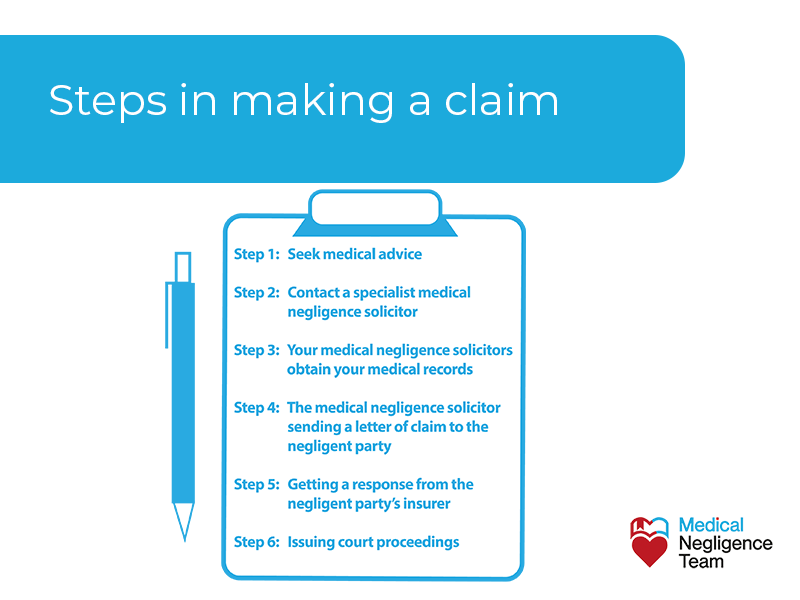
Step 1: Seek medical advice
Seek medical advice on the injuries you have suffered or are suffering immediately you realise you experienced improperly executed surgeries.
Step 2: Contact a specialist medical negligence solicitor
Contact a specialist medical negligence solicitor who operates on a No Win No Fee basis and tell them what went wrong. The right solicitor will look at your case, see where the problem lies, and advise if you suffered improperly executed surgeries negligence.
The Medical Negligence Team also have a 100% Compensation Guarantee scheme, where you get all the money awarded in a negligence claim.
You are the one who suffered medical negligence, and you should get all the money due for the suffering.
Step 3: Your medical negligence solicitor obtains your medical records
Your medical negligence solicitor obtains your medical records with your permission. By reading your records, they will confirm if they think you have a valid improperly executed surgeries claim.
The medical negligence team will know from your medical records if the case will result in compensation being paid.
Step 4: The medical negligence solicitor sending a letter of claim to the negligent party
The medical negligence solicitor sending a letter of claim to the negligent party is the next step. The letter will ask them to admit the improperly executed surgeries in what is known as ‘sending a letter of claim.’
When the negligent party receives the letter of claim, it has up to four months to provide a written response.
Step 5: Getting a response from the negligent party’s insurer
Getting a response from the negligent party’s insurer will move your compensation claim closer to a conclusion.
The insurer will either admit the medical negligence or say they intend to defend the case. Deciding to defend the case is known as ‘deny liability’ in legal terms.
If they admit liability, your improperly executed surgeries claim can be valued, and the two parties will meet to decide on your compensation payment.
Your solicitor will negotiate with the negligent party and use their experience to get the compensation you deserve.
Step 6: Issuing court proceedings
Issuing court proceedings is the next step if they deny liability in your improperly executed surgeries claim.
Going to court happens, too, when they are not prepared to pay a fair amount for the injuries you have suffered. Your medical negligence solicitor issues the court proceedings.
Remember that less than 1% of medical negligence cases end up in court, and very few of those cases ever make it to the courtroom.
Using a No Win No Fee solicitor
Using a No Win No Fee solicitor is the only way to a successful improperly executed surgeries compensation claim. Your No Win No Fee medical negligence solicitor will not charge you for a claim you do not win.
Always have a fee agreement in place before engaging a medical negligence solicitor. If they start talking of a ‘win fee’ or a ‘success fee,’ you should walk away. The negligent party insurers should pay all fees.
The medical negligence solicitor should also operate a 100% Compensation Guarantee scheme. When you win the case, all the money awarded should go to you, not the solicitor.
You are the one who suffered the improperly executed surgeries, and you deserve the compensation to get your life back to normal.
How long do I have to make a claim for improperly executed surgeries?
You have three years to make a claim for improperly executed surgeries. All medical negligence claims are subject to limitation periods.
For example, in England and Wales, medical negligence claims must generally be brought and court proceedings issued within three years of the injury or three years of knowledge of the facts giving rise to the improperly executed surgeries claim.
If someone has passed away, it is the date of death if the limitation period has not expired at the date of death.
Children not under a disability typically have until they reach 21 to start an improperly executed surgeries claim or court proceedings.
Persons with a disability, who lack capacity, are not subject to any limitation period.
Can I make a medical negligence claim against the NHS?
Yes, you can make a medical negligence claim against the NHS. Suing the NHS for negligence is not unusual. People sue the NHS for compensation for medical negligence and receive the money they deserve for the negligent treatment.
There are between 8,000 and 10,000 successful medical negligence claims against the NHS each year—amounts in compensation claims awarded against the NHS range from £1000 to over £10 million.
The amount of compensation you receive covers minor injuries such as scarring to serious life-threatening negligence, which leaves you with long-term care needs.
We trust in and use the NHS daily and do not expect negligence. It happens, though, and the NHS has a dedicated team to handle medical negligence compensation claims, called NHS resolution.
NHS Resolution has a responsibility to treat patients who seek compensation fairly. Patients pay for the NHS through their taxes, and for that they deserve respect and the best medical treatment.
Contact The Medical Negligence Team
Contact the Medical Negligence Team today to discuss your improperly executed surgeries claim for compensation. We have both the legal and medical experts to guide you along the steps to a successful medical negligence claim for compensation.
At the Medical Negligence Team, we fight every compensation claim on a No Win No Fee basis. You will not be out of pocket for an unsuccessful claim.
We have a very high success rate and a reputation for a speedy and successful resolution to all medical negligence cases.
Our 100% Compensation Guarantee puts all the money you win into your pocket. You or your loved one suffered improperly executed surgeries and deserve every penny of the compensation claim.
Contact us at the Medical Negligence Team for all your medical negligence needs.


